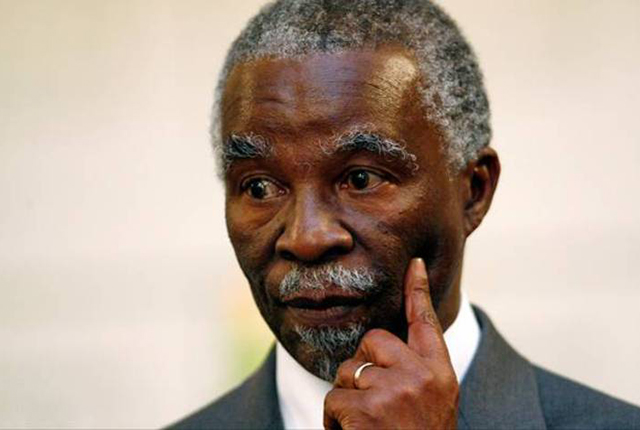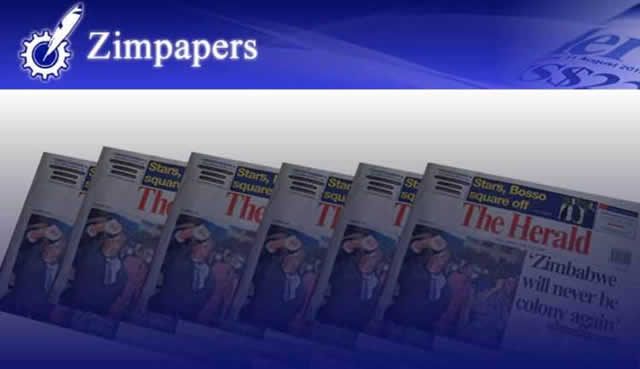South Africa’s ruling African National Congress trapped

Udo Froese Correspondent—
The owners of the economy, corporates, lobby groups, think tanks and their corporate mainstream media concocted a series of destructive strategies to ensure that particularly the African National Congress (ANC) would finally be reduced to a political party only second to the Democratic Alliance (DA) and Economic Freedom Fighters (EFF) by 2019.
In the build-up to such a scenario, the image of the ruling ANC as well as its government was seriously tarnished. Character assassinations, similar to those meted out against Zimbabwe’s President Robert Mugabe, became the daily fodder for South Africa’s corporate media.
Traps, such as the “secret Sunset Clauses”; “state capture”; “corruption”; chequebooks politics setting up “blind trusts” for political leadership and judges, are part of it. At the same time, leaders were deliberately not vetted to proof their competency and loyalties.
An assessment of the current situation with all its flaws needs to be done.
Senior members of the ANC admitted to the wrongdoings. They pointed at factionalism, polarisation, a compromised leadership, double speak to mislead the majority of the population “to be able to continue serving their corporate lobbyists, also viewed as handlers”.
The question arises, “When was the ANC leadership captured and compromised?”
In the 1980s big business sent its elite and lobbyists as often as they perceived it necessary, to Lusaka, Zambia; Dar-es-Salaam, Tanzania; Luanda, Angola; London, United Kingdom; Washington, USA; Zurich, Switzerland; Bonn, Frankfurt and Munich in Germany; the Scandinavian countries and others. Was it not then already that the leadership was captured?
How free was the revered Nelson Mandela really when he was moved to “Victor Verster prison” outside Paarl in the Western Cape?
By his own admission, the head of apartheid National Intelligence Services (NIS), Dr. Niel Barnard, influenced Mandela’s thinking of a “new South Africa under ANC rule”.
It became worse. There are those among the ANC leadership, who support the “secret Sunset Clauses” in private, which apartheid De Klerk and SACP Slovo brought to the negotiations in 1994. In public however, they deny their support of such secret agendas. Having met in secret with Big Business leaders; Boer academics, which fronted for a range of interests as well as the Urban Foundation, were ANC leaders not already captured by 1994?
The ANC failed to sensitize its members. When will that sun (of the secret Sunset Clauses) eventually set on South Africa? The contents of those secret clauses were never debated. The nation was thus, never taken along into the trust of the leadership. At the same time the majority was kept in the dark. Since the expiry date of those secret clauses, ANC members and the public in general were not informed. Why have the signed Sunset Clauses not been circulated among all ANC members, branches and the general public to be debated nationally?
The ANC was pushed into a corner at the CODESA negotiations in 1994. The grand apartheid planners and its international Western think tanks signed a much-hailed, neo-liberal constitution and its democracy.
And, this time grand-apartheid entered through the back door to stay, forming the constitution, through for example, “minority groups rights” and nine provinces bankrupting, dividing and unsettling South Africa further. “Minority groups’ rights” also protect structured poverty, as meted out at the poor indigenous majority. To date, that evil has not been addressed in public. It means, the public at large has been misled, as the ANC never fought for such.
The ANC further failed to set up its own think tank, its own research institute. Its media-platforms in exile, SECHABA, UMSEBEZI, DAWN and Radio Freedom were shut down on instruction of Thabo Mbeki. Why was this accepted? How could Mbeki wield so much power? Obviously, South Africa’s corporate mainstream media cartels do not have any African aspirations and interests at heart.
ANC followers had no further communication with its leaders. What was the role of certain leaders in doing such?
After the successful democratic elections, then President Nelson Mandela appointed his cabinet and support structures.
But, there was no Minister of Finance and no Governor of the Reserve Bank for a number of years still. It seemed quite obvious, that both, the new Finance Minister, Trevor Manuel, as well as the new Governor of the Reserve Bank, Tito Mboweni, were not vetted by the ANC government when appointed, but by the established white elite outside the new rulers.
Until now, the ANC is not able to appoint anyone in the Treasury, or the Reserve Bank. Those positions seem to have always been vetted by invisible anti-ANC interests. As it stands, Johann Rupert seems to lead those forces in South Africa.
South Africa’s Independent National Treasury, which President Zuma failed to capture, as accused, sits with a 50 percent debt to GDP, a declining economy, close to recession. It is paying the highest interest rates under any circumstances. Why did National Treasury not increase economic growth? How could South Africa benefit from its National Treasury?
A well-known senior economist insists that the following questions should be answered to the best of Pravin Gordhan’s abilities. “Of the ZAR1trillion debt, National Treasury head, Gordhan, raised since he became Minister of Finance, what exactly was this amount applied to? To date, South Africa has not seen the money. Where is it going? Who is in charge? Who hoodwinks the nation? Why has no forensic audit been done on the National Treasury?”
Given the current economic situation, the debt, the over-politicising of the Treasury, the factionalism of the ruling party, an independent National Treasury under Gordhan has failed South Africa.
No one asks the National Treasury any questions. Gordhan is a “bolombolo tiger”, created by public relations consultants, hopelessly over-inflated by the corporate mainstream media cartels. Under arrogant Gordhan, South Africans will be in for real grief. To date, no one asks Gordhan the mentioned hard questions, as well as why the Treasury is acting without any accountability.
Powerful Russian President Putin recently fired his Finance Minister when he discovered that his Minister had taken a bribe of US$2million.
Meanwhile, think tanks, such as the “Brenthurst Foundation”, the “Helen Suzman Foundation” and the “Freedom under Law Foundation”, who have long-standing links with Zimbabwe’s MDC-T and its leader Morgan Tsvangirai, remain forces to be reckoned with. It seems, nothing goes without their approval. Add to the mentioned NGOs US-George Soros’ “Southern African Litigation Centre (SALC)” and “Open Society Foundation”, they seem to form a “deep state”, undermining the South African state. This should be an additional national debate.
Another serious problem is patronage with government position-holders. It applies to the veterans as well as other stakeholders.
The recalled former ANC — and country president, Thabo Mbeki, was the architect of patronage, at the same time centralising all powers under him to ensure the old status quo remains in place.
Those, who accepted the “patronage system”, enjoyed guaranteed positions in government. ANC stalwart, Joel Netshitenzhe, and many others had their positions secured. This “patronage system” also made ANC members afraid to query the direction of Thabo Mbeki’s leadership. It amounted to intimidation. The descent within the ANC was oppressed.
The manipulation of using state agencies against one another was rooted in Mbeki’s term of office. It is interesting to observe that the very same “stalwarts”, currently questioning the state-of-affairs, perpetuated patronage under Mbeki.
The patronage system helped to identify and create “tenderpreneurs”. As some of the senior ANC NEC members told this writer under the condition of anonymity, “Mbeki’s faction benefited most from the patronage system. Those beneficiaries include Saki Macozoma, Smuts Ngoyama, Njali Majola, Bulelani Ngcuka and a few more. State patronage promoted corruption across the board and assured corruption on all levels, from national-, to provincial-, to municipal. Today, they are multi-millionaires.”
“In fact, “state captures” is not a new concept. We believe, the Guptas played the role of a decoy to deflect the focus to those who were actually captured. Who brought those Guptas to the ANC? What was Essop Pahad’s role? The mission is clear. It was done to destroy the ANC.”
“The Guptas were to infiltrate one of the factions”, the senior ANC NEC member pointed out. “Their mission was to establish the weakest link, which they seemed to have done.”
“If the ANC wants to reclaim its movement, it has to strictly ban corporate political funding across the board. Big business renders political leadership and its parties powerless. The corporates hijack all power to destroy whole countries, regions and continents for their own crude interests, as seems the case in Africa and the Mid East.”
“Under an ANC-led government, South Africa would have to move towards a ‘one-person, one-vote system’ in a ‘Constituent Assembly’. This is what the ANC fought for. It will return power to the people.”
Proportional representation shortchanges the electorate. It gives the party bosses more power than their own constituencies are worth. This is viewed as “fraudulently centralising power”. If this is not accepted, it could lead to the disintegration of the ANC into leaderless little groups and factions.”
It was also explained to this writer, “Joel Netshitenze’s suggestion of an electoral college for the ANC would guarantee the total capture of the movement. It borrows from the US, where only two political parties can be part of democracy, sponsored by Wall Street. Corporate interests would vet all political leaders and rule through them.”
Finally, in its own brutal assessment, the question, which should uphold the democratic principles, is a fair one. “No one has ever addressed recalled former president Mbeki’s loss of elections. Mbeki’s faction resigned and left with him. Neither Mbeki, nor any of his followers attend ANC meetings. Why did Joel Netshitenzhe, Sipho Pityana and Siphiwe Nyanda deliberately not address that issue? Who funds the ANC “stalwarts” for their public appearances?”








Comments